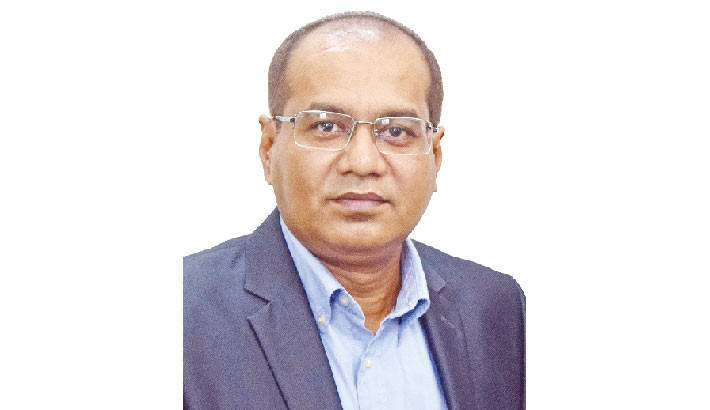Uncle Sam Shaping Bangladesh’s Future
A Pathway to Advancement?
Dr. Shibli Ahmed Khan
Published: 17 Oct 2024

Bangladesh stands at a turning point in its history. The choices made now will shape its future. With a fast-growing economy, a lively and youthful population, and increasing regional importance, Bangladesh inches towards becoming a model of prosperity in South Asia. Still, there are serious challenges at home: Undernourished mothers and children, a flawed education system and chronic corruption among government officers, hindering natural growth. In this context, increased US involvement—stemming from a long tradition of supporting democracy and development—could be the key in reforming government structures and boosting national progress.
A Pathway to Advancement?Disparate Views, Yet Moving Forward
Certainly, opinions on US involvement in Bangladesh vary widely, influenced by America’s contentious actions in the Middle East. Since 1971, the Awami League government has unjustly fostered anti-American sentiments, blaming foreign interference for domestic issues. Yet in 1957, Awami leaders like Sheikh Mujibur Rahman supported US military ties. Despite objecting the US’ foreign policy, especially in the Middle East, many Bangladeshis dream of moving to the country for ‘milk and honey’, showing admiration for its liberty, order and equality.
While criticisms of Uncle Sam’s foreign policy hold merit, Bangladesh’s situation is distinct. As a moderate democracy that has historically resisted authoritarian and communist threats, Bangladesh could benefit from strengthened stability and growth through closer US ties. However, this relationship should remain balanced, reciprocal and transparent.
Historical American Support: A Development Legacy
The United States has long helped Bangladesh grow through projects in infrastructure, health and education alongside crucial humanitarian aid. The US has promoted growth in areas ignored during colonial times.
Since 1947, notable American-funded initiatives include:
• USAID’s financial and technical support for Dhaka’s Institute of Education and Research (IER) since 1959 to train workers for education sectors. With this help, the University Laboratory School was set up in 1964 under IER’s oversight. Later USAID helped launch Dhaka University’s Institute of Business Administration (IBA) in 1966—the country’s top business school now!
• The International Centre for Diarrheal Disease Research, Bangladesh (ICDDR,B) — originally Cholera Research Laboratory in 1960 supported by the US — leading global health boosts like oral rehydration therapy saving lives of millions.
• Major USAID investments aided Bangladesh Agricultural University (Mymensingh) to modernise agricultural research and instruction.
These institutions today continue fostering progress, showcasing American aid’s effectiveness when targeted at sustainable structures and knowledge exchange.
During the Pakistan era assistance focused on East Pakistan infrastructure development but today assistance centres around social development projects like the Bangladesh America Maitree Project; Food Security and Health Programmes; Climate-Smart Agriculture Initiatives; Rohingya Crisis Aid; and Governance enhancement.
US Response to COVID-19 Crisis: A Display of Genuine Friendship
Recent US aid via the COVAX initiative amid the COVID-19 pandemic exemplifies genuine friendship. When India failed to keep its promise on the vaccine deals, the US stepped in donating millions of free doses, saving Bangladeshi lives amid global panic and showing humanitarian actions can meet both strategic aims and serve human welfare.
Reforming Education, Bureaucracy and Governance
The US has an opportunity to bring significant change to Bangladesh’s education system. Our textbooks are of poor quality, the secondary education is outdated, and most public universities are plagued with confrontational politics and unproductive nepotism. If the US can enrich Bangladesh’s educational landscape through institutions like IBA, certainly it can bring much-needed modernisation to public universities. By funding teacher training and curriculum enhancement, alongside technology use, USAID might improve learning outcomes for millions.
Moreover, reforming Bangladesh’s bureaucratic structures is another area where the country’s assistance may prove invaluable. Saddled with colonial-era practices, the present system struggles to shake off corruption and inefficiency. The United States, with its know-how in e-government and transparency, could help start important reforms—enhancing service delivery and increasing government responsiveness to citizen needs while building public trust.
The Importance of Strategy and Regional Stability
Positioned between China, India and the Bay of Bengal, Bangladesh holds immense strategic importance. With China’s influence growing in the region, the US has an interest in maintaining stability in South Asia. Strengthening the Bangladesh-US partnership might act as a balm against shifting power dynamics there. Furthermore, American investments could help guide Bangladesh towards middle-income status and further integration into the global economy.
It should be noted that despite their differences over Taiwan issues, China and the US continue as leading global trade partners. Thus, enhanced Bangladesh-US relations do not necessarily disrupt Bangladesh’s existing ties with China.
The Need for a Balanced Partnership
Successful American engagement in Bangladesh demands a respectful and balanced approach. For both parties to gain sustained benefits, it is essential that Bangladesh’s current and future governments engage in genuine dialogue rather than seek short-term political advantages. Just as the United States helped rebuild Europe and Japan post-World War II, it can aid Bangladesh’s aspirations for prosperity and stability by fostering transparent cooperation that benefits both nations significantly.
Bangladesh stands ready for growth; the US involvement could serve as a crucial catalyst here too! By strategically collaborating on education, improved governance and institutional development—both countries can set their paths towards success together! The recent visit by Dr Muhammad Yunus to the US shows that Bangladesh is ready to take advantage of the alliance’s prospects, and that the US has the resources, experience, and reputation to advance international relations.
____________________________________
The writer is an Associate Professor, American International University-Bangladesh.

